
Three Thanksgiving Recovery Tips
In last week’s blog, Kylee Marshall gave us some great illustrations of what Thanksgiving can look like for intuitive eaters. (If you haven’t read her blog yet, go check it out!) This week, I want to give you three simple suggestions for staying on the right track with your eating recovery this Thanksgiving.
1. Envision Your Wins
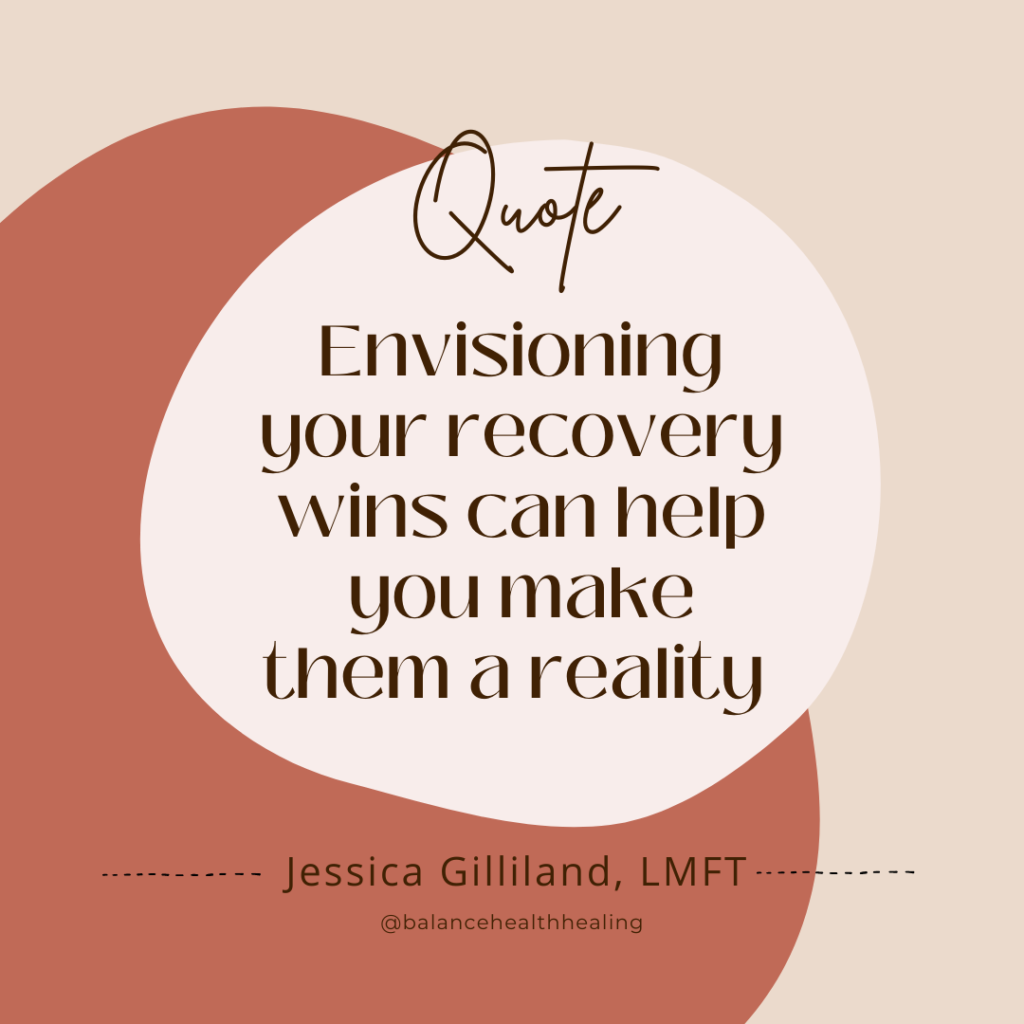 Thanksgiving in eating recovery can feel overwhelming for a lot of reasons, food-related and otherwise. At the same time, because it can be such a challenging day, Thanksgiving can be an opportunity to take meaningful steps forward in your recovery. Envisioning your recovery wins can help you make them a reality. Take some time to think about just one success you hope to have this Thanksgiving. You don’t have to think on a grand scale here. In fact, keep this win small, but specific. For example, maybe you want your win to be truly savoring and enjoying one of your aunt’s homemade rolls. Maybe you want to be able to focus on talking with your sibling during the Thanksgiving meal, instead of being preoccupied with thoughts about food. Maybe your win will be checking in with your hunger/fullness level before, during, and after the meal. Write your intention down as you approach the day, and commit to making that vision become a reality.
Thanksgiving in eating recovery can feel overwhelming for a lot of reasons, food-related and otherwise. At the same time, because it can be such a challenging day, Thanksgiving can be an opportunity to take meaningful steps forward in your recovery. Envisioning your recovery wins can help you make them a reality. Take some time to think about just one success you hope to have this Thanksgiving. You don’t have to think on a grand scale here. In fact, keep this win small, but specific. For example, maybe you want your win to be truly savoring and enjoying one of your aunt’s homemade rolls. Maybe you want to be able to focus on talking with your sibling during the Thanksgiving meal, instead of being preoccupied with thoughts about food. Maybe your win will be checking in with your hunger/fullness level before, during, and after the meal. Write your intention down as you approach the day, and commit to making that vision become a reality.
2. Support Yourself Instead of Pushing Yourself
Monica Packer, host of the About Progress podcast, talks about the idea of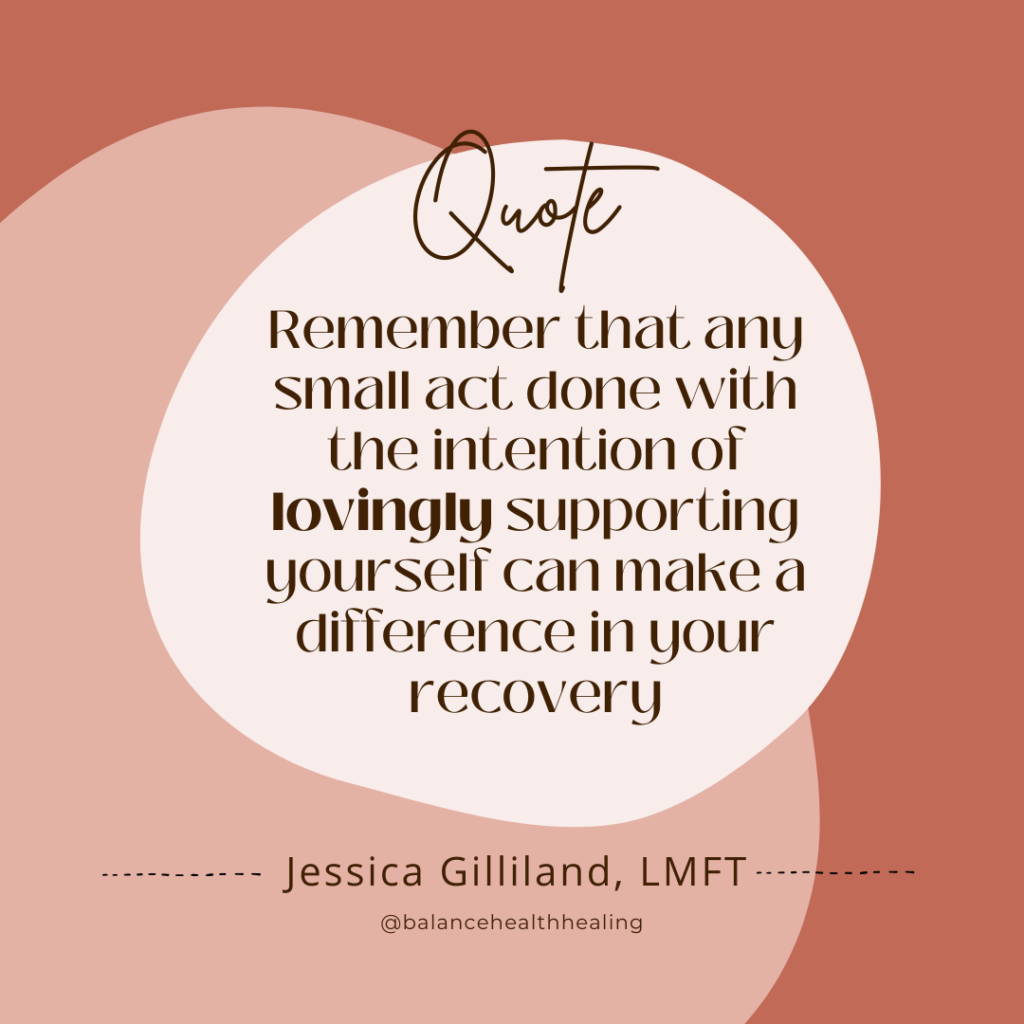 supporting yourself instead of pushing yourself as you work toward goals. I think this concept is a beautiful one to apply to eating recovery. After you’ve set your intention for a Thanksgiving win, try planning one simple thing you can do to support yourself as you work toward your intention. What kind, compassionate care can you give yourself to help your vision of success become a reality? Maybe you’ll set aside time to listen to a song that will help you feel supported before your Thanksgiving meal. Perhaps you’ll choose to spend a few soothing moments sitting outdoors after eating. Maybe you’ll FaceTime with a person in your life who understands how challenging Thanksgiving can be. Whatever you choose, remember that any small act done with the intention of lovingly supporting yourself can make a difference in your recovery.
supporting yourself instead of pushing yourself as you work toward goals. I think this concept is a beautiful one to apply to eating recovery. After you’ve set your intention for a Thanksgiving win, try planning one simple thing you can do to support yourself as you work toward your intention. What kind, compassionate care can you give yourself to help your vision of success become a reality? Maybe you’ll set aside time to listen to a song that will help you feel supported before your Thanksgiving meal. Perhaps you’ll choose to spend a few soothing moments sitting outdoors after eating. Maybe you’ll FaceTime with a person in your life who understands how challenging Thanksgiving can be. Whatever you choose, remember that any small act done with the intention of lovingly supporting yourself can make a difference in your recovery.
3. Keep the Day in Perspective
Finally, as you approach Thanksgiving prepared with your intention and your plan to support yourself, remember that Thanksgiving is just one day. It’s a holiday that can be messy and complicated, and in many ways, it can be just another day. Your body will use food on this day the same way it does every other day–for nourishment and energy. On this day, just like other days, you do not have to participate in diet talk. Food you eat on Thanksgiving, like food you eat on other days, will not create drastic changes in your body. Food will be one feature of this day, but it does not have to be in charge of your day. This is true every day, not just on Thanksgiving.
Thanksgiving might not ever be the easiest day of the year in eating recovery, but I hope you’ll remember that you can keep moving forward in your recovery tomorrow. You can make a difference in your own recovery, even through the difficulty of the holiday season. Happy Thanksgiving to you!


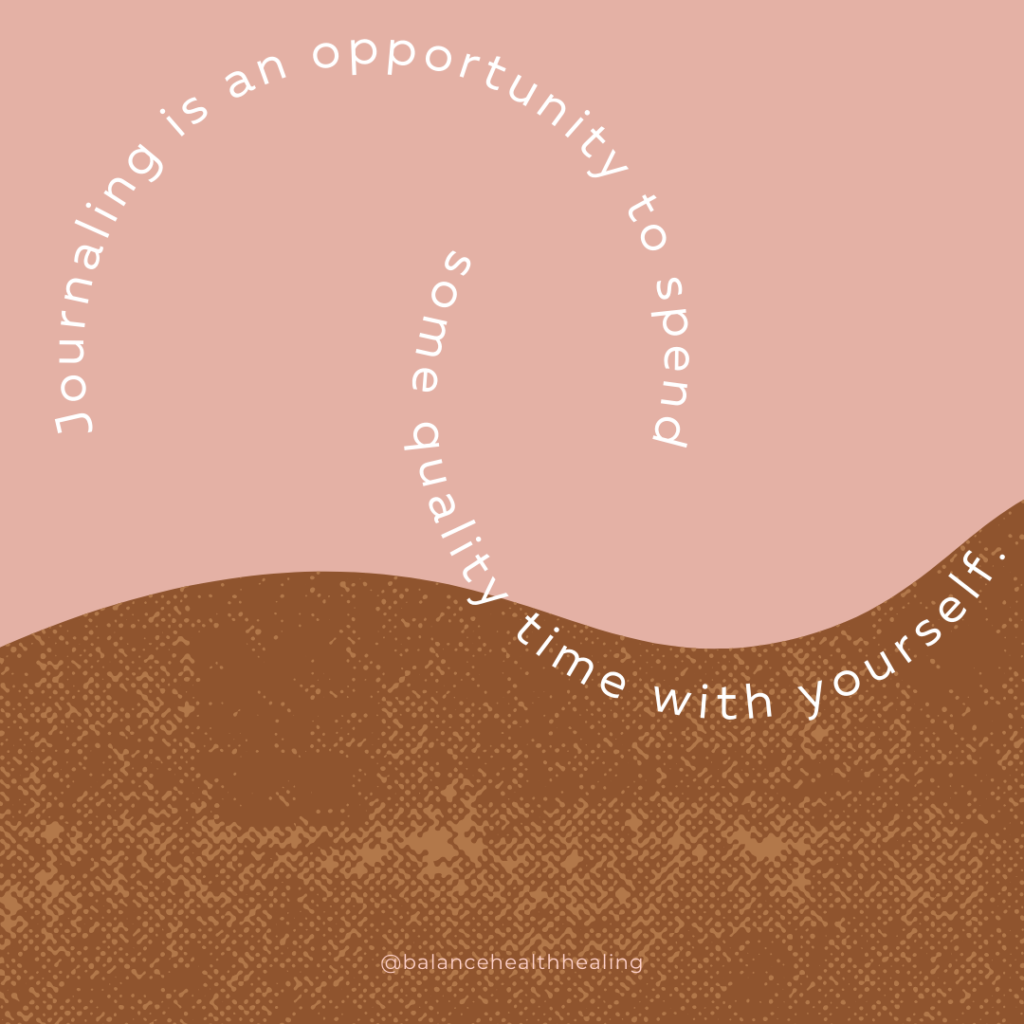 some. We all process things differently, and journaling doesn’t appeal to everyone. That being said, I do give journal prompts out to many of my therapy clients as a supplement to the work we do in therapy. Here are a few reasons why:
some. We all process things differently, and journaling doesn’t appeal to everyone. That being said, I do give journal prompts out to many of my therapy clients as a supplement to the work we do in therapy. Here are a few reasons why: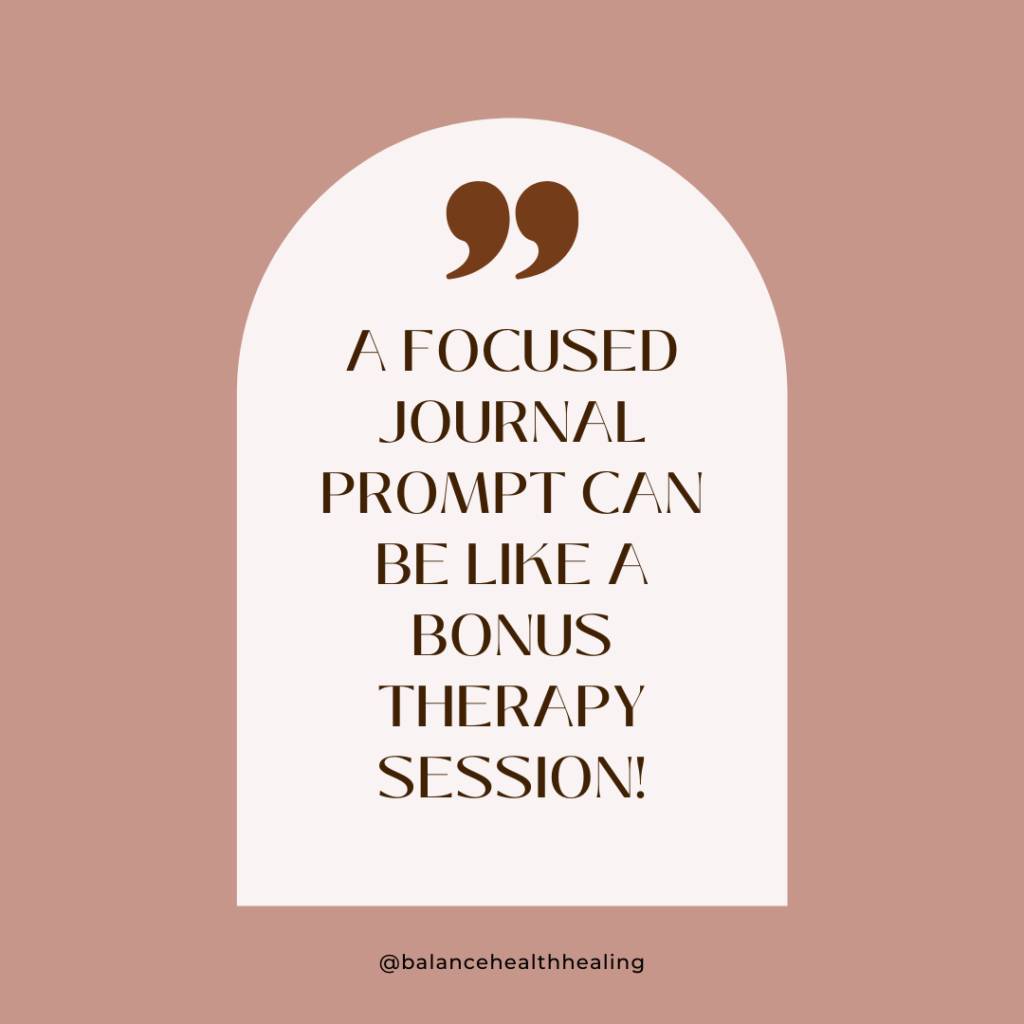 Below are some journal prompts you might find helpful in your eating recovery process. Pick whichever one speaks to you, write down today’s date, and see where your writing takes you.
Below are some journal prompts you might find helpful in your eating recovery process. Pick whichever one speaks to you, write down today’s date, and see where your writing takes you.
 eating disorder? Or will they be watching you the whole time to make sure you’re eating enough and not struggling? Will they think your eating disorder isn’t that bad, and you’re being dramatic? Or will you feel embarrassed if they notice you stressing about food? Should you eat in a way that will prove that you really do have an eating disorder (because you do), or should you eat in a way that shows you’re totally ok (even if you’re not)? Now should you even go, or should you just stay home? Then what will they think?
eating disorder? Or will they be watching you the whole time to make sure you’re eating enough and not struggling? Will they think your eating disorder isn’t that bad, and you’re being dramatic? Or will you feel embarrassed if they notice you stressing about food? Should you eat in a way that will prove that you really do have an eating disorder (because you do), or should you eat in a way that shows you’re totally ok (even if you’re not)? Now should you even go, or should you just stay home? Then what will they think? you have to prove your eating disorder is real, and at the same time feeling like you have to hide your struggle, please know you’re not alone. I hear my clients express these feelings on a regular basis, and it’s a struggle that makes sense! Here is the core of what I hope you can take from this post: You deserve (and can have) both validation and recovery.
you have to prove your eating disorder is real, and at the same time feeling like you have to hide your struggle, please know you’re not alone. I hear my clients express these feelings on a regular basis, and it’s a struggle that makes sense! Here is the core of what I hope you can take from this post: You deserve (and can have) both validation and recovery. Even if you are progressing in your recovery, that doesn’t mean your eating disorder was never real, or that recovery is a walk in the park for you. It can feel SO scary to acknowledge and talk about the unseen struggles of your eating disorder (past or present), especially if you worry about others not validating you.
Even if you are progressing in your recovery, that doesn’t mean your eating disorder was never real, or that recovery is a walk in the park for you. It can feel SO scary to acknowledge and talk about the unseen struggles of your eating disorder (past or present), especially if you worry about others not validating you.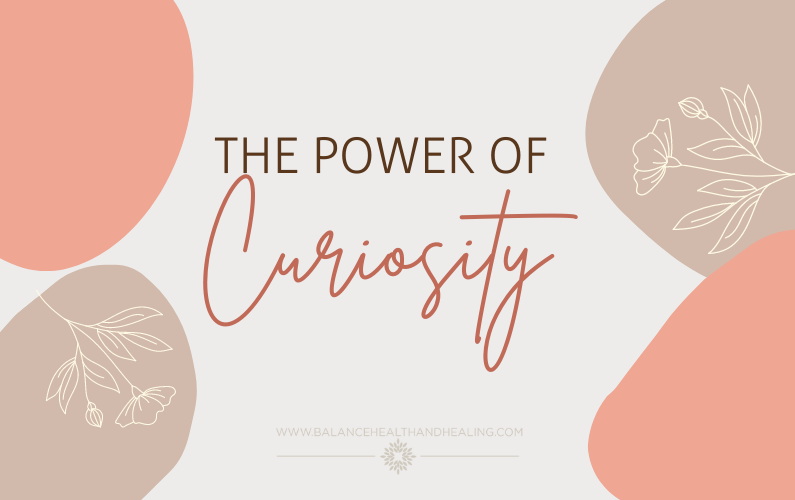
 Sometimes his questions leave me unsure of how to answer, but nonetheless, I appreciate his way of thinking about the world. As you can imagine, his questions often lead us to some very interesting discussions and discoveries. I don’t see him running out of questions any time soon.
Sometimes his questions leave me unsure of how to answer, but nonetheless, I appreciate his way of thinking about the world. As you can imagine, his questions often lead us to some very interesting discussions and discoveries. I don’t see him running out of questions any time soon. these questions as my 4-year-old brings when he looks at a moth and wonders whether or not it can burp. Practice asking yourself questions with curiosity, and without criticism. Let the questions fly, as if you were looking at yourself and your experience for the first time, without judgment.
these questions as my 4-year-old brings when he looks at a moth and wonders whether or not it can burp. Practice asking yourself questions with curiosity, and without criticism. Let the questions fly, as if you were looking at yourself and your experience for the first time, without judgment.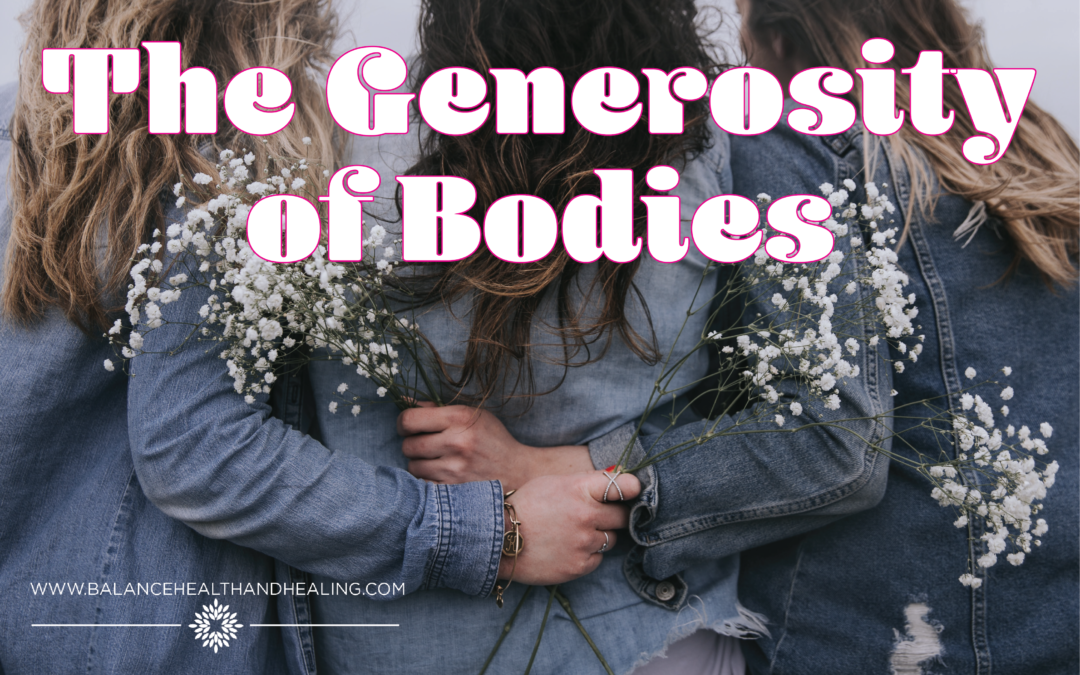
 I realized that my body did not resent me for hurting it, even though I had made the same painful mistake twice in a row. My thumb didn’t say, “Well, I tried healing once and you messed up again. You’re on your own this time–you won’t get help from me.” Instead, my body did exactly what it was supposed to do to begin healing. My blood clotted to stop the bleeding, a mild sting reminded me to put on a bandage to protect the broken skin, and my cells immediately began rebuilding to close the wound. Quietly, automatically, my body did its work.
I realized that my body did not resent me for hurting it, even though I had made the same painful mistake twice in a row. My thumb didn’t say, “Well, I tried healing once and you messed up again. You’re on your own this time–you won’t get help from me.” Instead, my body did exactly what it was supposed to do to begin healing. My blood clotted to stop the bleeding, a mild sting reminded me to put on a bandage to protect the broken skin, and my cells immediately began rebuilding to close the wound. Quietly, automatically, my body did its work.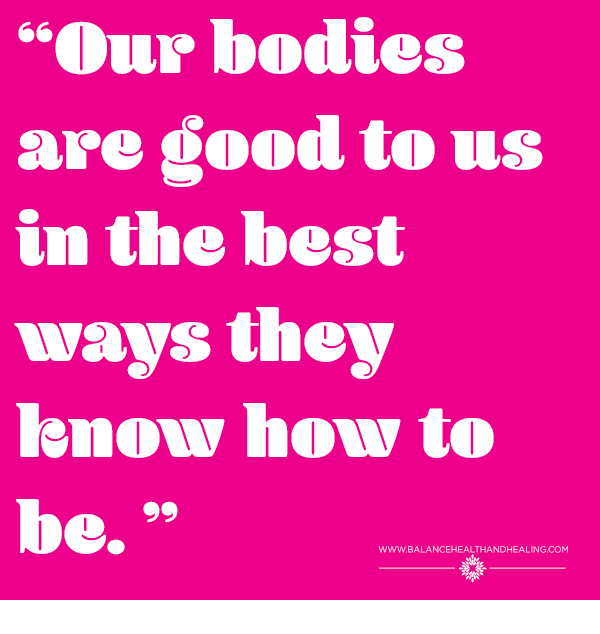 Now, while our bodies are unquestioningly generous to us in doing the best they can, this is not to say that they are not affected by the way they are treated. Our bodies are perpetually responsive to the things they experience. For example, when our bodies are deprived of nourishment (for any reason), they respond by trying to protect us–either by overconsuming when nourishment becomes available (AKA bingeing), or by slowing or shutting down functions in order to preserve energy.
Now, while our bodies are unquestioningly generous to us in doing the best they can, this is not to say that they are not affected by the way they are treated. Our bodies are perpetually responsive to the things they experience. For example, when our bodies are deprived of nourishment (for any reason), they respond by trying to protect us–either by overconsuming when nourishment becomes available (AKA bingeing), or by slowing or shutting down functions in order to preserve energy.